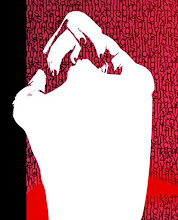
In the latest edition of the Oxford English Dictionary, there are a lot of Hindi words, including Angrez and badmash. More Hindi words would soon be entered into the Collins Bank of English.
The Queen's English is turning into Queen's 'Hinglish', thanks to multiculturalism. Not only words but, slang such as "innit" used extensively by the educated Asian young have had a massive influence on the spoken English, specially in inner cities where many Asian communities have taken on dominant role in the political, economic and social life.
In Leicester or Birmingham "achha", "arre" and "am chey" are commonly understood. The popular spoof television programmes like 'The Kumars at No 42' and 'Goodness Gracious Me' that have commanded large segment of British viewers have had enormous impact on everyday conversation in English and the knowledge of Hindi words.
If the craze for the curry has brought in words like balti, tikki, pulao and pappadom, music has introduced bhangra, mujra and ghazal. The craze for Bollywood films had added to the general awareness of Hindi words, even abuses like "sala". In cinema complexes like in Birmingham and Leicester where at least in one movie hall four shows of a Bollywood film are screened every day, many English people can be spotted in the audience. They might not use many words like theek, yaar, naach and gaana, but they fully comprehend their meaning.
The term "chuddies" is now one word which is some what in general use because of the popularity of 'Kumars at No 42' and 'Goodness Gracious Me'. True, many English people have learnt that it is not a word that should be used in polite conversation or in front of ladies. But, may be for fun or whatever many young English boys and girls never hesitate to use the word in north England cities like Bradford or Burnley.
A report in The Observer said that a study in Birmingham looking at mixed groups of Sikhs and whites in youth clubs found that all white teenagers quickly absorbed derogatory Punjabi words to use as insults. Churi, lahenga, sari, ganja, cheetah, mehndi, sindoor, balti and masala are all understood and accepted words in most High Street shops and in drawing room conversations.
A linguist at Reading University, Arfaan Khan expects a whole new dialect to emerge soon. Collins Dictionary editor-in-chief was quoted in The Observer.
"This will be an increasing trend. If new words are used enough they will end up in the dictionary, and once they are then they become English words, too. With our increasing multi-cultural society, in 50 years English will have a mass of words from all the different cultures living on this island."
So Asians in campuses would soon provide slang "seen" meaning, "I see" and "oi, blud soon brethren" meaning "will see you soon brother". And why not they are paying seven times more tuition fees.
They are enriching the coffers of both the universities and the English language as well. In the spoken Hindi in India too, words like table, bank, almirah and sahib are words commonly used by even the semi-illiterate in villages. "Now with the Raj in opposite swing, it is not surprising that Hindi words are understood and used here", said a Hindi lecturer.
So the purists should not complain. Collins chief editor, Jeremy Butterfield
too said, "English is a mongrel language, and has always been." Innit!

No comments:
Post a Comment